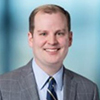Introduction to Trust and Estates 2024 (presented by NYU School of Professional Studies) [Day 3]


















19 hour CLE
Tuition: $0.00
Get this course, plus over 1,000+ of live webinars.
Learn More
All-Access Pass
Free access to all CLE programs w/active subscription. Annual subscription only $395/yr.
Training 5 or more people?
Sign-up for a law firm subscription plan and each attorney in the firm receives free access to all CLE Programs
Program Summary
The Introduction to Trusts and Estates Conference provides an understanding of the varieties of taxes and tax issues applicable to gratuitous transfers by individuals and trusts and estates.
Key topics to be discussed:
- The fundamentals of the estate tax, gift tax, and generation-skipping transfer tax, including inclusions and exclusions, common valuation issues, and typical resolutions
- Fundamentals of estate and trust planning for individuals and families of modest to ultra-high net-worth
- The ancillary impact of the estate tax rules including basis rules applicable to assets distributed from the estate to beneficiaries
- The basics and differences in planning before and after death, with emphasis on the relationship of the gift tax to the estate tax and planning opportunities involving spouses and family members
- Income tax planning in estates, trusts, and beneficiaries
Date / Time: July 15, 2024
- 8:25 am – 4:30 pm Eastern
- 7:25 am – 3:30 pm Central
- 6:25 am – 2:30 pm Mountain
- 5:25 am – 1:30 pm Pacific
Date / Time: July 16, 2024
- 8:45 am – 4:30 pm Eastern
- 7:45 am – 3:30 pm Central
- 6:45 am – 2:30 pm Mountain
- 5:45 am – 1:30 pm Pacific
Date / Time: July 17, 2024
- 8:45 am – 4:30 pm Eastern
- 7:45 am – 3:30 pm Central
- 6:45 am – 2:30 pm Mountain
- 5:45 am – 1:30 pm Pacific
![]() Closed-captioning available
Closed-captioning available
Speakers
 Joseph P. Scorese, Esq. | Sills Cummis & Gross P.C.
Joseph P. Scorese, Esq. | Sills Cummis & Gross P.C.
Joseph P. Scorese is a Member of the Sills Cummis & Gross Tax, Trusts and Estates Practice Group. Mr. Scorese’s primary area of practice is complex estate planning and estate and trust administration for high net worth individuals and families. Mr. Scorese counsels clients in the New York and New Jersey area and helps them design and realize both appropriate and realistic estate planning goals. He then implements those goals with customized drafting solutions utilizing the latest cutting-edge strategies including sophisticated wills, revocable trusts, irrevocable life insurance trusts (ILITs), charitable remainder trusts (CRATs and CRUTs) and charitable lead trusts (CLATs and CLUTs), family limited partnerships and limited liability companies, qualified personal residence trusts (QPRTs), grantor retained annuity trusts (GRATs) and intentionally-defective grantor trusts (IDGTs).
In the complicated area of estate and trust administration, Mr. Scorese readily and regularly engages with fiduciaries and beneficiaries to provide creative tax planning ideas which can help minimize the bite of taxation from income and capital gains taxes, estate tax, gift tax and generation-skipping transfer tax, thereby maximizing the amount of wealth passing to family.
Mr. Scorese has served as an Adjunct Professor of Law at Rutgers Law School in Newark, New Jersey, and currently serves as the Program Chair for the New York University Summer Institute in Taxation’s “Introduction to Trusts & Estates” program, where he lectures on the generation-skipping transfer tax. He has also presented various estate planning continuing legal education programs offered through the American Bar Association, New York City Bar Association, New Jersey State Bar Association and other legal and non-legal organizations.
 Mitchell Drossman, Esq. | Bank of America
Mitchell Drossman, Esq. | Bank of America
Mitchell A. Drossman is managing director and the national director of wealth planning strategies at U.S. Trust, Bank of America Private Wealth Management. In this role, Mitchell manages and leads the National Wealth Planning Strategies Group to provide objective insight to help clients align their financial and estate strategies with their goals by integrating the full capabilities of our investment and financial planning services and by utilizing the broad range of Bank of America affiliates. Mitchell works with individuals, families, closely-held family businesses, family offices and institutions in conjunction with their tax and legal advisors to facilitate wealth transfer, business succession (pre- and post-liquidity event strategies), wealth structuring and estate planning needs that are often complex requiring customized analysis and strategies.
Prior to joining U.S. Trust, Mitchell was an estate planning attorney with the New York City law firm of Proskauer Rose LLP, for approximately nine years. Mr. Drossman is also a Certified Public Accountant and was formerly with the Big Four accounting firm of Ernst & Young, LLP. Mr. Drossman served on the Advisory Board of Practical Drafting, a highly regarded estate planning publication. He has spoken at numerous seminars including various Estate Planning Councils (New York 2015, Greensboro, NC 2013), New York University’s Summer Institute in Taxation (2007 to 2013), Florida Bar Attorney/Trust Officer Conference (2016), Minnesota State Bar Annual Probate & Trust Law Conference (2016), the UJA-Federation of New York’s Annual Estate, Tax and Financial Planning Conference (2011-2013), The College of William & Mary Marshall-Wythe School of Law’s Annual Tax Conference (2010 and 2009), and the ACTEC Annual Meeting (2007). Mr. Drossman has often been quoted in various publications, including The Wall Street Journal, Barron’s, Forbes, BusinessWeek and The New York Times.
Mr. Drossman is a Fellow in the American College of Trust and Estate Counsel (ACTEC). Mr. Drossman served as a member of the Association of the Bar of the City of New York (and its Committee on Estate and Gift Taxation, 1996-2000), the New York State Society of CPAs (and served as the Chair of the Committee on Income Taxation of Estates and Trusts), the New York State Bar Association (and its Trusts and Estates Section and Estate Planning Committee), the UJA?Federation’s Trusts and Estates Specialty Group (and served as Chair from 2009-2011), the Museum of Modern Art’s Planned Giving and Advisory Committee and is a member of the Alumni Admissions Board of Brooklyn Law School.
Mr. Drossman received his J.D. cum laude from Brooklyn Law School, where he served as Editor of the Law Review. Mitchell does not provide legal or tax advice in his role at U.S. Trust.
 Margaret St. John Meehan, Esq. | Day Pitney LLP
Margaret St. John Meehan, Esq. | Day Pitney LLP
Margaret “Meg” St. John Meehan focuses her practice on providing estate planning services to high net worth individuals and their families. Her focal point is on minimizing gift, estate, and generation-skipping transfer taxes, as well as adapting existing trusts to improve their income and estate tax efficiency and utility, structuring gifts, and implementing sophisticated tax planning strategies.
In addition to this, Meg provides counsel to principals in the private equity and hedge fund sectors, advising them on optimizing planning opportunities associated with carried interests. Furthermore, she advises family offices and their principals on a wide range of matters, including tax optimization, governance, structuring, and comprehensive planning solutions.
Meg also oversees all phases of estate administration, including probate, preparation of estate tax returns, and estate tax audits. Her practice extends to advising donors on planned giving and providing guidance to private foundations and public charities on formation, qualification, and governance matters.
 Michelle Orlowski | Bessemer Trust
Michelle Orlowski | Bessemer Trust
Ms. Orlowski is Managing Director and Head of Estate Administration and Fiduciary Counsel at Bessemer Trust. In this role, she is responsible for managing all estates on which the firm serves as executor or personal representative. In addition, she works closely with clients, family members, and beneficiaries in order to facilitate the transfer of wealth in a tax-efficient manner and in accordance with the decedent’s estate plan.
Prior to joining Bessemer, Michelle practiced law in the trusts and estates departments at various New York City law firms and was a member of the Estate Administration department at U.S. Trust. She is a member of the New York State Bar Association.
Michelle earned an LL.M. in taxation from New York University School of Law, a J.D. from Fordham University School of Law, an M.A. in American history from Fordham University Graduate School of Arts and Sciences, and a B.A. in history and economics from Fordham College.
 Brad Dillon, Esq. | Andreessen Horowitz
Brad Dillon, Esq. | Andreessen Horowitz
Brad Dillon is a partner on the a16z Perennial team focused on tax, trust, and estate advisory, developing and implementing creative and comprehensive wealth transfer strategies that align with clients’ wishes. He reviews clients’ tax and estate planning documents to ensure that each plan accurately and holistically reflects the family’s philosophy and needs while maximizing tax efficiency and creditor protection.
Prior to joining a16z Perennial, Brad worked at UBS advising ultra high net worth families to help them achieve their tax, estate planning, and philanthropic objectives. Brad began his career in private legal practice, most recently at Milbank in New York City, where he practiced in the firm’s trusts and estates department
Outside of a16z Perennial, Brad is an adjunct professor at Fordham Law School, where he teaches courses on trusts and estates. In addition, Brad is on the editorial board of the Estate Planning Journal, where he is a regular contributor to the current developments column. Brad also co-chairs the multi-state practice section of the New York State Bar Association’s Trusts and Estates Law section. Finally, Brad is regularly quoted in the media on tax policy matters, and is a frequent lecturer and author, having published dozens of articles in industry-leading journals, including Journal of Taxation, Estate Planning, Trusts and Estates, and Leimberg.
Brad earned a BA in mathematics and philosophy from Indiana University (summa cum laude), a JD from UCLA School of Law, where he was an editor of the UCLA Law Review, and an LLM (Master of Laws) in taxation from NYU School of Law. Brad lives in New York City with his husband, twins, and dog.
 Stacia C. Kroetz, Esq., MBA, CPA | Brown Brothers Harriman & Co.
Stacia C. Kroetz, Esq., MBA, CPA | Brown Brothers Harriman & Co.
As a Senior Wealth Planner in the New York office, Stacia Kroetz advises families and business owners on matters relating to tax and estate planning, philanthropy, business succession, and the preservation of wealth for future generations.
Prior to joining the firm, Stacia was in private legal practice in the Trusts and Estates department at Seward & Kissel LLP, where she focused on estate, gift, and generation-skipping transfer tax planning. Earlier in her career, she was an auditor at KPMG.
Stacia received a B.S. in accounting (summa cum laude) from Fordham University, an MBA from Fordham University Graduate School of Business Administration, and a J.D. from Boston College Law School. She is also a licensed CPA.
 Mark Taccetta | Brown Brothers Harriman & Co.
Mark Taccetta | Brown Brothers Harriman & Co.
 Catherine G. Schmidt, Esq. | Schulte Roth & Zabel
Catherine G. Schmidt, Esq. | Schulte Roth & Zabel
Advises on complex estate and tax planning for high-net-worth individuals and families, entrepreneurs and real estate owners, and on planning for the generation-skipping transfer tax.
Through use of sophisticated techniques such as qualified personal residence trusts, grantor retained annuity trusts, dynasty trusts, intentionally defective grantor trusts and limited liability companies, among others, as well as traditional wills and revocable trusts, Catherine assists clients in minimizing the impact of estate and gift taxes on their estate plans, and in transferring family wealth to their children and grandchildren.
She also has considerable experience in the administration of large estates and trusts, advising clients on private foundation matters and in representing clients in contested estate and gift tax audits. In addition to numerous audits settled at the initial and appeals levels, Catherine has also represented clients before the US Tax Court, achieving favorable settlement results and trial victories.
 Kyle G. Durante, Esq. | Blank Rome LLP
Kyle G. Durante, Esq. | Blank Rome LLP
Kyle G. Durante concentrates his practice on providing sophisticated counsel to high-net-worth individuals and families in trust and estate matters to create tax-efficient wealth transfer strategies through estate, tax, business succession, and asset protection planning.
Kyle has notable experience counseling clients on exemption capture planning, drafting estate planning documents, assisting with the preparation of gift tax, estate tax, and fiduciary income tax returns, assisting individuals with the establishment and maintenance of tax-exempt organizations, foundations, and trusts, as well as conducting extensive research on income, estate, generation-skipping transfer, and capital gains taxation.
Kyle is also experienced at managing contested and uncontested estate and trust administration matters within the court systems, including probate, administration, accounting, and miscellaneous proceedings. He regularly represents clients in matters before the New York Surrogate’s Court, including fiduciary succession applications, trust termination proceedings, will contests, construction proceedings, accountings, declaration of death proceedings, and other fiduciary-based litigation. During law school, Kyle served as the managing editor of the Touro Law Review.
 Haley B. Bybee, Esq. | Blank Rome LLP
Haley B. Bybee, Esq. | Blank Rome LLP
Haley Brooke Bybee concentrates her practice on estate planning for high-net-worth families and individuals. Haley has notable experience drafting complex estate planning documents, assisting in the administration of taxable and non-taxable estates, establishing tax-exempt organizations, foundations, and trusts, advising on premarital and post marital agreements, updating and correcting irrevocable trusts, and reviewing trust accountings, gift and estate tax returns, and fiduciary income tax returns.
Prior to joining the firm, Haley served as a private client associate at a law firm focusing on tax law. During law school, Haley served as an executive editor of the Boston University Public Interest Law Journal and president of the Women’s Law Association.
 John M. Olivieri, Esq. | Barnes & Thornburg LLP
John M. Olivieri, Esq. | Barnes & Thornburg LLP
John focuses his practice in the areas of estate planning, business succession planning, charitable giving and asset protection. His clients include private business owners, public company executives, investment fund managers, individual and corporate fiduciaries, and tax-exempt organizations.
John assists clients with virtually all aspects of estate and trust administration including probate, the preparation and audits of estate and gift tax returns, fiduciary income tax returns, and judicial and non-judicial accountings, and the creation and management of private trust companies. He also regularly advises trustees on issues involving taxation and fiduciary liability, and is very experienced in drafting and interpreting gift agreements to colleges and universities.
He works closely with clients to develop plans for securing and protecting their assets. These plans usually involve the use of appropriate structures, such as limited partnerships, limited liability companies and so-called “asset protection” and “spendthrift” trusts, in various jurisdictions throughout country and around the world. He also regularly counsels foreign individuals making investments in the United States.
Aside from such counseling and planning work, John is frequently called upon to represent individuals and corporate fiduciaries in litigious matters related to estate and trust administration such as will contests, contested accountings, and tax controversy matters.
Due to his deep knowledge in the field, John is often quoted in Bloomberg, The Wall Street Journal and other publications on matters of estate and tax planning.
 Timothy M. Ferges, Esq. | McCarter & English, LLP
Timothy M. Ferges, Esq. | McCarter & English, LLP
Tim is a problem-solver. He works closely with his clients to help them navigate through difficult situations involving trusts and estates. Timothy Ferges is Chair of the firm’s Tax, Employee Benefits, Trusts, Estates & Private Clients practice group. He concentrates his practice in all areas of trust and estate law, including trust and estate litigation, estate planning, and trust and estate administration.
He advocates for clients in disputed estate and trust matters before the courts of New Jersey and New York. His matters include will contests and disputes over the validity of trusts or gifts. In those disputes, he brings and defends challenges to wills, trusts, and gifts on grounds of mental incapacity, undue influence, fraud, and other claims. Tim also brings and defends breach of fiduciary duty claims and handles contested accounting proceedings, will and trust construction matters, will and trust reformation or modification matters, disputes involving the validity or use of powers of attorney, guardianship proceedings, and other fiduciary disputes. He represents beneficiaries, individual fiduciaries, institutional trust companies, as well as charitable and non-profit organizations in those disputes.
Tim further counsels individuals and families in estate planning and estate administration matters. He works with clients to reach their estate planning goals while integrating asset protection and minimizing exposure to income and transfer taxes. He also advises fiduciaries with respect to tax compliance, settlement of fiduciary accountings, and all other facets of trust and estate administration.
Tim is a nationally recognized award-winning author and speaker. He has written for many notable publications covering varied trust and estate issues. He is a frequent lecturer to attorneys, accountants, and other professionals. Tim is a Fellow of both the American College of Trust and Estate Counsel (ACTEC) and the American Bar Foundation. He holds leadership roles in committees of ACTEC; the American Bar Association’s Real Property, Trust and Estate Law Section; and state bar associations.
In addition to being an attorney, Tim is a certified public accountant. He joined McCarter & English with extensive experience from his time at Deloitte & Touche, where he audited financial statements of publicly held corporations in the financial services industries. In his public accounting career, he also prepared estate planning analyses and worked
in tax compliance, preparing federal and state estate tax returns, inheritance tax returns, gift tax returns, and fiduciary income tax returns.
Upon his graduation from law school, Tim served as law clerk to the Honorable Renee Jones Weeks and, upon her retirement, to the Honorable Walter Koprowski, Jr., both in the Probate Part of the Superior Court of New Jersey, Chancery Division. There his work was focused on the types of complex trust and estate litigation and guardianship matters in which he now concentrates his practice.
Tim also devotes his time to public service. He serves as a member of the Board of Trustees of the Springpoint Senior Living Foundation, a non-profit organization that funds housing and services for senior citizens. Moreover, through Partners for Women and Justice, he represents victims of domestic violence in final restraining order proceedings and other family law matters. Through the Essex County Probate Early Settlement Panel, Tim also serves as court-appointed mediator in trust and estate disputes.
 Jack F. Meola, CPA, Esq. | Eisner Advisory Group LLC
Jack F. Meola, CPA, Esq. | Eisner Advisory Group LLC
Jack Meola has 30 years of public accounting experience, providing services to both private and publicly held companies. He directs the firm’s Estate Planning Group and has handled issues for high net worth individuals, corporations and non-profit organizations.
His experience as an advisor emphasizes domestic and international estate and succession planning, pension planning, domestic and international corporate and individual tax issues, and family business matters. Prior to joining the firm, Jack worked in the New Jersey offices of two national accounting firms.
Jack has spoken extensively before professional organizations, universities and civic groups on topics including estates and trusts, international estate planning, and real estate and partnership taxation. He has also authored numerous articles on taxation.
Jack was part of the EisnerAmper team previously honored by the Society of Trust and Estate Practitioners (STEP), as the North American Team of the Year at the STEP Private Client Awards.
 Kimberly A. DeMaro | Paul, Weiss, Rifkind, Wharton & Garrison LLP
Kimberly A. DeMaro | Paul, Weiss, Rifkind, Wharton & Garrison LLP
Kimberly A. DeMaro is counsel in the Personal Representation Department. Kimberly’s practice involves all aspects of trusts and estates law, including personal and tax-driven estate planning including all types of trusts, private foundations and retirement assets. Kimberly manages the dynamics of large family relationships and she regularly works on complex trust and estate administration, including post-mortem estate planning, tax planning and judicial accounting.
Kimberly is a member of the Association of the Bar of the City of New York’s Committee on Estate and Gift Taxation and New York State Bar Association’s Trust & Estates Section.
 Amy C. O’Hara, Esq., CELA | Littman Krooks LLP
Amy C. O’Hara, Esq., CELA | Littman Krooks LLP
Amy focuses her practice on special needs planning, trusts and estates, elder law and personal injury settlement consulting. She is a sought out speaker and frequently speaks to advocacy organizations on the importance of proper planning for families of children with special needs.
Amy C. O’Hara is a partner with the law firm of Littman Krooks LLP. Her practice focuses in the areas of elder law, estate planning and administration, trust administration, guardianship, special needs planning and personal injury settlement consulting.
Amy lectures frequently to advocacy and professional organizations and families on the importance of proper planning for families of children with special needs. She regularly publishes articles relating to elder law, estate and special needs planning.
Amy is Certified as an Elder Law Attorney (CELA®) by the National Elder Law Foundation and is a member of the National Academy of Elder Law Attorneys (NAELA).
She is the President of the Board of Directors of the Special Needs Alliance, a national, not-for-profit organization dedicated to assisting families with special needs planning. Amy is also the President of the Board of Directors of Westchester Disabled on the Move, Inc., a not-for-profit organization that aims to improve the quality of life and the rights for all people with disabilities.
She is a member of the New York State Bar Association (NYSBA), Elder Law and Trusts & Estates Sections of the NYSBA, Westchester County Bar Association, and Mamaroneck-Harrison-Larchmont Bar Association.
Amy received her Juris Doctor degree from University at Buffalo Law School and received her Bachelor of Science degree from Binghamton University.
Amy is married and the mother of two sons.
 Brian L. Miller, Esq., CELA | Littman Krooks LLP
Brian L. Miller, Esq., CELA | Littman Krooks LLP
Brian L. Miller, Esq., CELA®, is a Certified Elder Law Attorney, certified by the National Elder Law Foundation. He assists clients with various aspects of Elder Law, Estate Planning, Estate Administration, Medicaid Planning and Applications, Special Needs Planning, Trust Administration and Guardianships.
Brian is a member of the Elder Law and Special Needs Section and Trusts and Estates Law Section of the New York State Bar Association, and the Elder Law and Special needs Planning Committee of the Westchester County Bar Association. He is actively involved in the New York State Bar Association Elder Law and Special Needs Section Medicaid Committee, as well as the Westchester County Senior Law Day Committee. He is a frequent lecturer at professional organizations and community groups regarding various topics related to Estate Planning, Medicaid Planning, and Elder Law in general.
Brian received his Juris Doctorate in Law degree, cum laude, from Pace University School of Law, and his Bachelor of Arts degree from Syracuse University.
 Brian D. Conboy, Esq. | Fiduciary Trust Company International
Brian D. Conboy, Esq. | Fiduciary Trust Company International
 Elisa Pickel, Esq. | Fiduciary Trust International
Elisa Pickel, Esq. | Fiduciary Trust International
Agenda
DAY 1: MONDAY, JULY 15
ESTATE TAXES I: THE NATURE OF THE TAX AND UNDERSTANDING THE GROSS ESTATE | 8:25am – 10:15am
This presentation introduces the basic infrastructure of the federal estate tax, the wealth tax that still drives all trust and estate planning. Covered are essential elements of the computation of the tax: the rates and credits, and the impact of the most recent statutes which affect wealth taxation, including relevant current tax law and policy discussions. Specific attention is given to the foundations of what is included in the gross estate, including powers of appointment, life insurance, and transfers with retained interests.
Mitchell Drossman, Esq., Managing Director, National Director of Wealth Planning Strategies, Bank of America Private Wealth Management, New York, NY
ESTATE TAXES II: THE MARITAL DEDUCTION, CREDIT SHELTER PLANNING, AND PORTABILITY | 10:15am – 11:15am
Estate planning for spouses requires an understanding and appreciation of the unlimited marital deduction and how it is used effectively in wills and trusts. Also explored are planning with the “applicable exclusion amount,” the credit shelter (or “bypass”) trust and the basics of “portability” under the Tax Relief Act of 2010, the American Taxpayer Relief Act of 2012, the 2017 Tax Cuts and Jobs Act, and the Federal Regulations.
Margaret St. John Meehan, Esq., Partner, Day Pitney, Stamford, CT
Break | 11:15am – 11:30am
ESTATE TAXES III: OTHER IMPORTANT DEDUCTIONS AND ELEMENTS OF PLANNING WITH THE CHARITABLE DEDUCTION | 11:30am – 12:45pm
The presentation highlights the elements and the rules which govern deductions which can reduce or eliminate the estate tax, such as deductibility of debts, expenses of administration, and taxes. Also introduced are the estate tax charitable deduction and its importance as a planning tool for charitable remainder trusts (CRATs and CRUTs) and charitable lead trusts (CLATs and CLUTs).
Michelle Orlowski, Principal, Head of Estate Administration and Fiduciary Counsel, Bessemer Trust, New York, NY
Lunch | 12:45pm – 1:45pm
THE BASICS OF BASIS IN ESTATE PLANNING | 1:45pm – 3:00pm
Estate planning for high-net-worth individuals has undergone a fundamental shift in focus. Practitioners can no longer rely simply on recommending venerable solutions such as credit shelter trusts and dynasty trusts to solve wealth tax problems. The current tax environment demands that advisors master the income tax effects of capital gains and capital losses on estate and trust property and inherited wealth. Clients are making strategic investment decisions on income taxation, and too often costly mistakes occur and opportunities are missed when basis issues are ignored. What is basis? How does it change? When does a step-up occur? When does a step-down occur? How is basis reflected (and how does it change) in family limited partnerships? These and other fundamental concepts are explored, including the role basis may play in any “death tax” reform.
Brad Dillon, Esq., Partner, Andreessen Horowitz, New York, NY
Break | 3:00pm – 3:15pm
INTRODUCTION TO INCOME TAXATION OF TRUSTS AND ESTATES | 3:15pm – 4:30pm
This session explores the fundamentals of federal income taxation for estates and trusts. What are the essential components of the IRS Form 1041? How is fiduciary income tax computed? Other essentials covered include “simple” vs. “complex” trusts, treatment of capital gains and losses, distributable net income (DNI), income tax charitable deduction rules, and other itemized deductions and limitations.
Stacia C. Kroetz, Esq., MBA, CPA, Senior Wealth Planner/Senior Vice President, Brown Brothers Harriman & Co., New York, NY
Mark Taccetta, Vice President and Fiduciary Income Tax Manager, Brown Brothers Harriman & Co., New York, NY
DAY 2: TUESDAY, JULY 16
LIFETIME TRANSFERS AND THE FEDERAL GIFT TAX: THE ENDURING WEALTH TAX | 8:45am – 10:30am
The tax on a client’s lifetime gifts is an important complement to the estate tax and essential knowledge for anyone advising on estate and trust matters. But what is a gift? This presentation explores the nature of gifts through the eyes of the Internal Revenue Code. Essential concepts are covered such as the elements of a completed gift, allowable deductions, the annual exclusion, and other exclusions. Also covered in this presentation are the fundamental planning usages of disclaimers and Crummey trusts. In addition, the presentation covers foundational concepts such as gift splitting, calculation of tax, filing gift tax returns and procedures, and the impact of the relevant recent tax laws and projected tax policy.
Catherine G. Schmidt, Esq., Partner, Schulte Roth & Zabel, New York, NY
Break| 10:30am – 10:45am
MULTI-GENERATIONAL PLANNING AND THE GENERATION-SKIPPING TRANSFER TAX | 10:45am – 12:15pm
The third of the three wealth taxes, the GST tax is largely a “planning tax” that affects high-net-worth individuals, and advisors and practitioners who ignore it do so at their peril. Basic concepts and mechanics of the tax are explored (i.e., the characterization of a generation skip, the allocation of GST exemption, inclusion ratio and the applicable rate), as well how these mechanics affect estate planning for high-net-worth individuals in vehicles such as perpetual dynasty trusts and insurance trusts.
Joseph P. Scorese, Esq., Member, Sills Cummis & Gross, Newark, NJ, and New York, NY
Lunch | 12:15pm – 1:30pm
DIGITAL ASSETS | 1:30pm – 2:45pm
Rapid changes in technology are challenging an estate planner’s ability to keep pace with them. This presentation discusses federal and state legislation and case law for estate planning with digital assets and a fiduciary’s access and distribution of a decedent’s digital assets. The session includes planning techniques and best practices to ensure a client’s wishes are satisfied and the smooth administration of an estate with digital assets.
Kyle G. Durante, Esq., Associate, Blank Rome, New York, NY
Haley B. Bybee, Esq., Associate, Blank Rome, New York, NY
Break | 2:45pm – 3:00pm
TRANSFER TAX VALUATION ISSUES AND THEIR IMPACT ON FAMILY WEALTH PLANNING OPTIONS | 3:00pm – 4:30pm
What is “fair market value,” as applied to the world of Federal transfer taxation? This presentation discusses this very fundamental and critical aspect of estate planning and estate administration and how its perception has changed over the years. Emphasis is spent on valuation in the context of closely-held business interests, family limited partnerships and the Special Valuation Rules of Chapter 14 of the Code.
John M. Olivieri, Esq., Partner, Barnes & Thornburg, New York, NY
DAY 3: WEDNESDAY, JULY 17
STATE DEATH TAXES AND FIDUCIARY INCOME TAXES: WHO SAID YOUR ESTATE OR TRUST WASN’T TAXABLE? | 8:45am – 10:00am
The Tax Cuts and Jobs Act of 2017 has gone a long way in providing federal transfer and income tax relief to the wealthy. Planners need to be increasingly mindful, however, of opportunities and traps arising from a client’s exposure to a particular state’s income and wealth tax regime. With their increasing need for revenue, many states continue to impose their own form of estate and inheritance taxes, which if overlooked, result in unhappy surprises for beneficiaries. State income taxes applicable to trusts also are a factor in planning that need increasing attention. Practitioners are often unaware of how trusts are taxed at the state level and how the residence of a trustee or even a beneficiary can expose that trust to his or her own state’s fiduciary income tax. This presentation provides an overview of the impact of state taxes affecting wealth transfers and the increasingly critical strategic attention practitioners need to pay when designing sophisticated plans in dynasty trusts with multijurisdictional contacts.
Timothy M. Ferges, Esq., Partner, McCarter & English, Newark, NJ
ESTATE AND TAX PLANNING FOR NON-US CITIZENS | 10:00am – 11:15am
An essential primer for any estate planning professional who seeks to advise clients with international contacts. The impact of US wealth taxes on non-citizens is explored, including gift and estate tax exemptions for non-resident aliens, annual exclusions for gifts by US citizens to non-citizen spouses, and qualified domestic trusts. Also covered is an overview of the compliance rules required for individuals with foreign bank accounts (FBAR) and required IRS reporting for beneficiaries who receive foreign gifts and bequests.
Jack F. Meola, CPA, Esq., Advisor, Eisner Advisory Group, Iselin, NJ
Break | 11:15am – 11:30am
PLANNING TECHNIQUES USING GRANTOR TRUSTS | 11:30am – 12:30pm
Grantor trusts enjoy a special role in sophisticated estate planning for high-net-worth individuals. This presentation explores the appeal of the grantor trust, what makes an irrevocable trust a grantor trust, and how it is deployed. A comparison of the two most popular techniques, the Grantor Retained Annuity Trust (or GRAT) and the sale to an intentionally defective grantor trust (or IDGT) are explored and explained.
Kimberly A. DeMaro, Esq., Counsel, Paul, Weiss, Rifkind, Wharton & Garrison, New York, NY
Lunch | 12:30pm – 1:30pm
FUNDAMENTALS OF ELDER LAW AND SPECIAL NEEDS PLANNING | 1:30pm – 2:45pm
The U.S. has no health insurance for long-term care. Seventy percent of Americans aged 65 and over will need some form of long-term care during their lifetime, regardless of their net worth. Additionally, one in six children under age 18 have one or more developmental disabilities and more than fifty-six million Americans are living with some type of disability, whether it is mental, cognitive, and/or physical. This presentation will address the fundamentals in elder law and special needs planning to enable every practitioner to identify planning needs for their clients.
Amy C. O’Hara, Esq., CELA, Partner, Littman Krooks, New York, NY
Brian L. Miller, Esq., CELA, Partner, Littman Krooks, New York, NY
BREAK | 2:45pm – 3:00pm
INSIDE THE BLACK BOX OF ESTATE ADMINISTRATION AND EXECUTORS’ ELECTIONS | 3:00pm – 4:30pm
A decedent’s estate in administration presents the executor and his or her advisors with a multitude of tax options and elections, many of which are overlooked and cost families needless taxes. Estate and income tax elections are explored in general. Specific attention is given to fiscal year election and IRC §645 election, uses of alternate valuation, the benefits of filing for extensions and deferrals of payment of estate tax, and the benefits and costs of using a deduction for income vs. estate tax purposes.
Brian Conboy, Esq., Managing Director, Trust Counsel, Director of Estate Administration, Fiduciary Trust Company International, New York, NY
Elisa Pickel, Esq., Managing Director, Trust Counsel, Senior Estate Settlement Officer, Fiduciary Trust Company International, New York, NY
Credits
No credit information available.
#1 CLE Access Program
- Over 1,000 Live CLE Webinars each year
- All CLE webinars broadcasted in last 12 months
- Programs covering over 35 practice areas
- Hot topics & changes in the law
- All formats: Live, Replay, and On-demand
- Accreditation in every state
Access every CLE webinar,
every format, all year long!
myLawCLE All-Access Pass
only $395 yearly
Register Now
#1 CLE Access Program
- Over 1,000 Live CLE Webinars each year
- All CLE webinars broadcasted in last 12 months
- Programs covering over 35 practice areas
- Hot topics & changes in the law
- All formats: Live, Replay, and On-demand
- Accreditation in every state
Access every CLE webinar,
every format, all year long!
myLawCLE All-Access Pass
only $395 yearly
More CLE Webinars
Trending CLE Webinars


![The Litigator’s Guide to Evidentiary Objections: When to hold them and how to avoid mistakes (Including 1hr of Ethics) [2024 Edition]](https://mylawcle.com/wp-content/uploads/2024/03/The-Litigators-Guide-to-Evidentiary-Objections-When-to-hold-them-and-how-to-avoid-mistakes-Including-1hr-of-Ethics-2024-Edition_myLawCLE.jpg)







Upcoming CLE Webinars























































